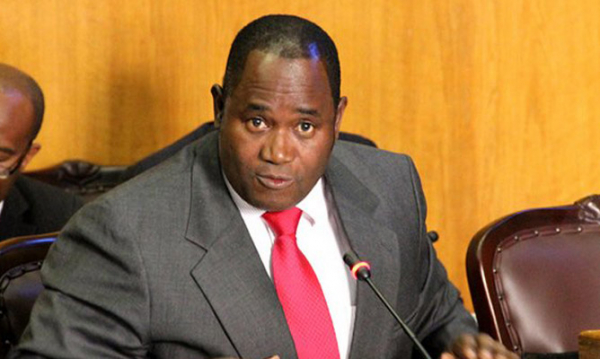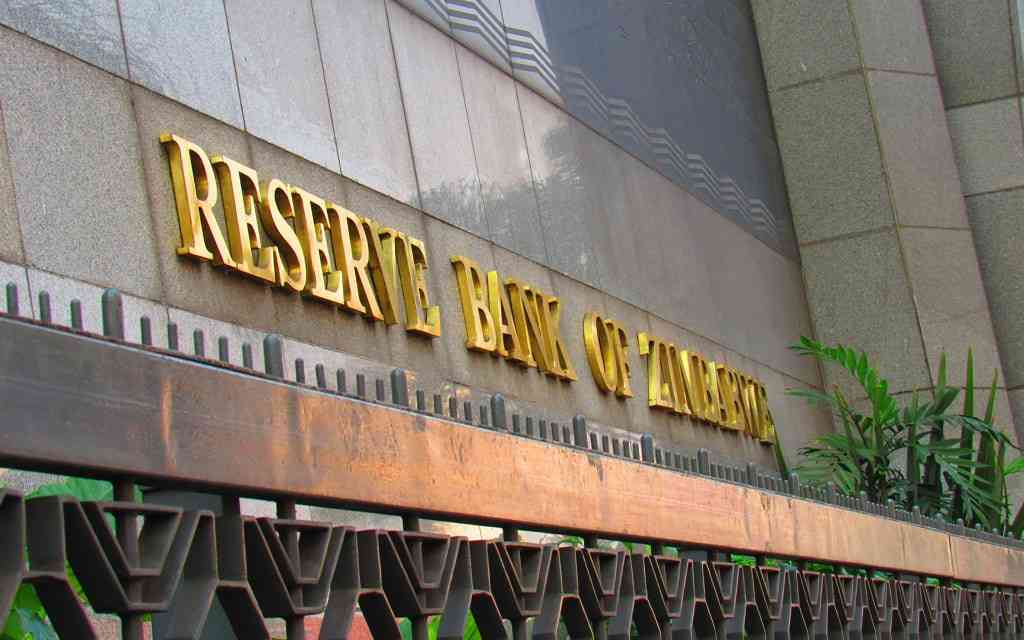
THE ruling Zanu PF party yesterday appeared shaken to the core after names of government fat cats who benefited from the 2007/8 Reserve Bank of Zimbabwe (RBZ)-funded farm mechanisation scheme were exposed, with acting party spokesperson Patrick Chinamasa (pictured) saying he would issue a statement on the matter.
BY MOSES MATENGA
“I am going to issue a statement on that,” Chinamasa curtly said.
Following the exposé, Information permanent secretary Ndavaningi Mangwana took his anger to social media platforms, accusing people who leaked the document of omitting names of some alleged beneficiaries for political expediency.
“The fight for public accountability should never be seen as a political tool. When lists of beneficiaries of State programmes are published with some names deliberately redacted, then the exposé betrays its nefarious intent. The act of redacting certain names in itself is corrupt,” Mangwana tweeted.
Former central bank governor Gideon Gono was shaken and forced to recant statements he made in 2007 regarding the status of the facility. Then, Gono claimed it was a loan facility which farmers were supposed to pay back.
Gono, who had kept the list of beneficiaries under wraps since 2007, made a surprise U-turn at the weekend saying beneficiaries were not expected to pay back the money since it was a government freebie to capacitate newly resettled farmers.
This was after UK-based Zimbabwean lawyer and analyst Alex Magaisa had quizzed him over the matter.
- Chamisa under fire over US$120K donation
- Mavhunga puts DeMbare into Chibuku quarterfinals
- Pension funds bet on Cabora Bassa oilfields
- Councils defy govt fire tender directive
Keep Reading
“I can state categorically that Dr Magaisa is offside and that no beneficiary of the farm mechanisation programme ever refused to pay for the equipment that they got and neither were they asked to pay,” Gono’s 2011 letter said.
Curiously, Gono’s letter to then Agriculture minister Joseph Made confirmed that indeed the facility was a loan meant to be paid back.
“As you are aware, Honourable minister, the bank is owed a lot of money by beneficiaries of the Farm Mechanisation Programme. The board needs your advice on the way forward given the political nature of the circumstances surrounding this debt,” Gono wrote.
According to the leaked list, President Emmerson Mnangagwa received US$411 728 for his much-hyped Pricabe Farm in Kwekwe, alongside several army and Judiciary officers, politicians and journalists, among others.
Magaisa asked rhetorically:“If these goods were free, why was it necessary to characterise them as debts owing from the beneficiaries?”
Gono accused Magaisa of making unfounded, inaccurate and unfair conclusions in his article which went viral at the weekend.
In a hard-hitting response to Gono, Magaisa quoted several published articles that contradicted Gono’s position regarding the scheme.
“The purpose of this statement was to bolster the view that the transactions were not loans but free hand-outs. However, this is inconsistent with the statement at the end of the article where Dr Gono is quoted as saying, “Both rural and non-rural farmers benefited from the takeover of the loans by the State …,” Magaisa added.
“The adage that one cannot have his cake and eat it at the same time is appropriate. One statement says it was not a loan, but the other says it was a loan taken over by the government. It can’t be both at the same time. It is these contradictions that give rise to opacity which fuels more speculation and suspicions,” Magaisa argued.
In a 2008 story in our sister publication, the Zimbabwe Independent, Gono was quoted as saying government was in a quandary over how to proceed with the debt owed by farmers who benefited from the programme following the changes to the exchange rate.
In 2010, Gono was also quoted in the media saying the mechanisation facility was a loan and beneficiaries would pay back. He added that the central bank had drafted modalities for repayment.
The government eventually took over the debt in 2015 under the Debt Assumption Act when Chinamasa was Finance minister, despite resistance by opposition MPs.
“Another fact that shows that these transactions were treated as loans is that all beneficiaries were given credit ratings. The highest credit rating, according to the scheme was A. An A credit rating means the RBZ considered you as most able to repay, while a C credit rating was the lowest among beneficiaries,” Magaisa continued.
“Therefore, the fact that these transactions were initially framed as loans is evident from history. In the latest Sunday Mail article, Dr Gono says the position that no one should repay ‘was arrived at after consultations with the government which took the decision and wrote to him that equipment given to farmers during that most trying period should not be regarded as a loan to anyone and, therefore, no payment was to be made by the beneficiaries of the programme’.”
“This means this was a position taken after the fact, and it is consistent with the view that the transactions were initially treated as loans before the government decided otherwise.”
Magaisa said it was even worse that Gono was seeking to treat the supposed loan as a “freebies” by government at the expense of the taxpayer.
Magaisa said it was illogical that selected beneficiaries got machinery and equipment without signing any formal agreement imposing legal obligations upon them, adding that the move was even more suspicious.
One of the beneficiaries, former Provincial Affairs minister for Masvingo, Kudakwashe Bhasikiti, yesterday said he had repaid his farm mechanisation loan.
“Those who are saying farm mechanisation was for free are telling blatant lies. I paid $10 billion for mine which was worked out as the US dollar equivalent then. Everyone has to pay. Corruption has to be exposed,” Bhasikiti said.











